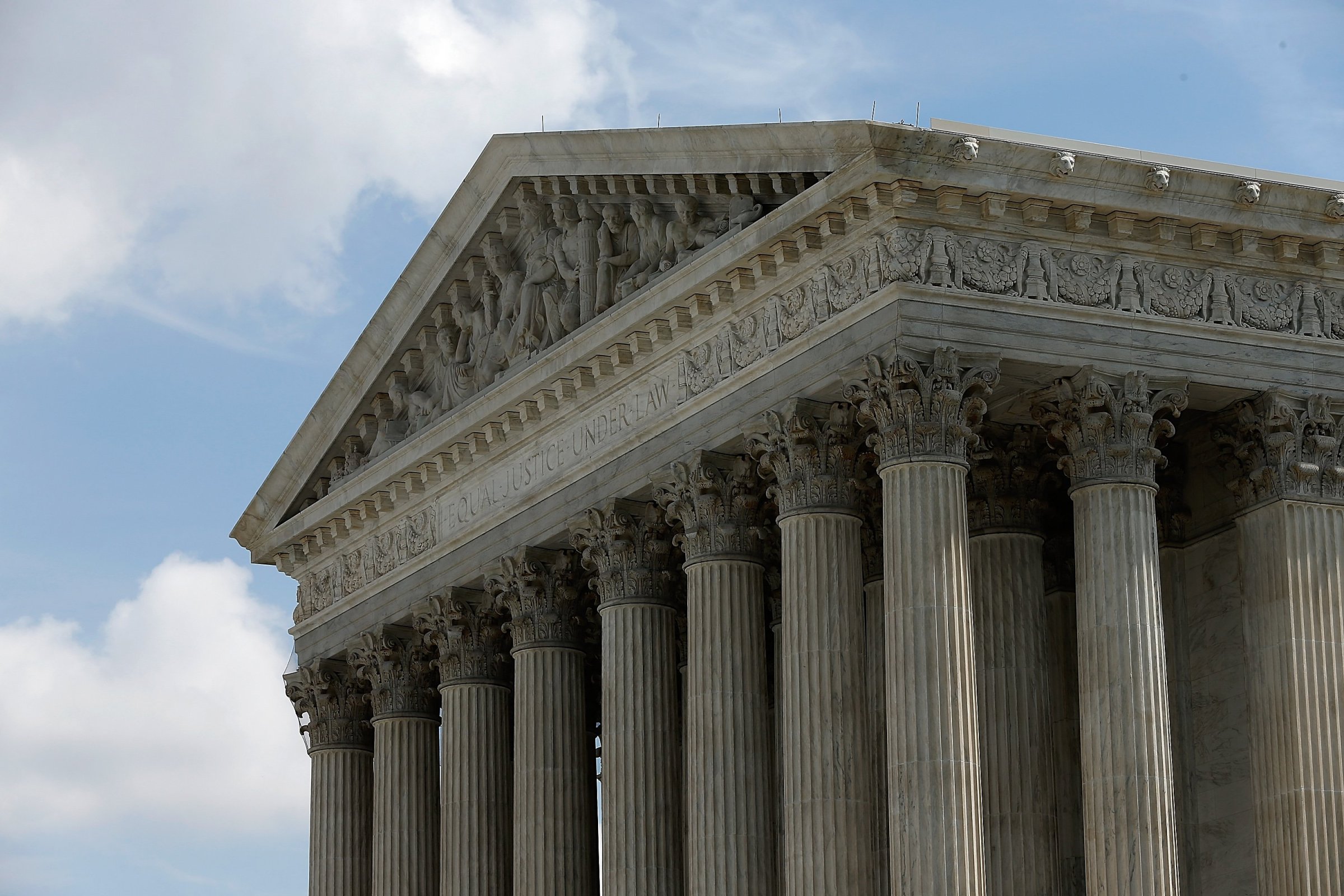
The Supreme Court decided Monday that public sector unions cannot collect “fair share” fees from non-union-members, in a 5-4 decision that dealt unions a sharp blow.
The much-awaited decision limits, but does not reverse, the court’s well-trodden ruling from 1977, known as Abood. In that case, the court found that requiring non-union-members to pay “fair share” fees did not violate workers’ First Amendment rights, so long as those fees do not go to advancing specifically “political or ideological” ends.
The decision, written by Justice Samuel Alito, marks a loss for public sector unions, which may see their coffers and power depleted in coming years, although it’s not the worst-case scenario that many labor activists feared. The ruling stopped short of finding all “fair share” dues unconstitutional. It also does not affect all full-time public employees, but only a category called “partial public employees,” which includes a growing sector of home heath care workers.
The decision also marks a victory for the anti-union group, National Right to Work Legal Defense Foundation, which is backed by many hardline conservatives, including the Koch family. Representing the plaintiff, the Legal Defense Foundation argued that requiring non-union-members to pay some “fair share” union fees was the same as requiring them to pay to support “political or ideological ends.” Their argument hinged on the idea that, in this day and age, any involvement with a union is inherently “political or ideological.”
During oral arguments in January, Justice Anthony Kennedy posed a series of hard questions about the harm done to the workers who did not support the existence of the union and yet were required to pay union fees, although he stopped short of suggesting he thought it was a First Amendment question. Justice Stephen Breyer worried that “the courts of the United States are going to fashion, using the First Amendment as their weapon, a new special labor law for government employees.”
The ruling is arguably the most significant labor law decision since the 1980s and may significantly weaken many public sector unions across the country by essentially placing them under the same rules that exist in “right to work” states. In “right to work” states, it is illegal to require workers in most sectors to pay any union fees. In such states, labor unions’ power has dwindled precipitously in the last three decades; public sector unions are the only unions that remained relatively strong across the country. It’s particularly significant for the home health care industry, which the Bureau of Labor Statistics expects to grow by roughly 70 percent in the next decade.
This case, Harris v. Quinn, dealt with home care workers in Illinois who care for the disabled. The plaintiff, Pamela Harris, cares for her adult son who suffers from a rare genetic disorder. In that capacity, Harris receives a Medicare check to act as her son’s caregiver. Because her paycheck is from the government, she is considered a partial employee of the state, and therefore represented by the union Service Employees International Union (SEIU) Healthcare Illinois-Indiana.
According to a contract between SEIU Healthcare and Illinois, and about 10 other states, home care workers were obligated to pay fees to SEIU to cover the expenses associated with bargaining, whether or not they were union members. Non-union-members also benefited from union-negotiated contracts. Since organizing in 2003, home care workers’ rages got bargained up from $5 an hour to $11.85 an hour, and will rise to $13 in December, according to Lydia DePillis at the Washington Post.
Like many others like it, the SEIU’s contract with the states was designed to avoid freeloading and drew its legal foundation from the court’s decision in Abood. But in this case, Harris and her fellow plaintiffs argued that being required to pay union fees amounted to “forced association” with a group with whom they may disagree, which amounts to a violation of their First Amendment rights.
The plaintiffs’ argument was built largely on an often-revisited caveat within the 1977 Abood decision, in which the court specified that while non-union members could be required to pay fees for collective bargaining, their money could not be used in any way to support a union’s political or ideological activity. Under that standard, forcing a worker to pay to support a certain variety of political speech—rather than economic bargaining—would be a violation of their First Amendment rights.
Over the last 37 years, there have been repeated legal challenges questioning where, exactly, that line is drawn, but the court has repeatedly upheld its decision in Abood. The decision today, while not overturning Abood, significantly limits the scope of that decision which may have serious ramifications for many unions that collect “fair share” fees.
More Must-Reads From TIME
- The 100 Most Influential People of 2024
- Coco Gauff Is Playing for Herself Now
- Scenes From Pro-Palestinian Encampments Across U.S. Universities
- 6 Compliments That Land Every Time
- If You're Dating Right Now , You're Brave: Column
- The AI That Could Heal a Divided Internet
- Fallout Is a Brilliant Model for the Future of Video Game Adaptations
- Want Weekly Recs on What to Watch, Read, and More? Sign Up for Worth Your Time
Write to Haley Sweetland Edwards at haley.edwards@time.com